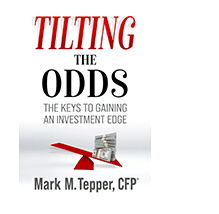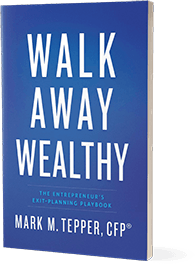It’s important to think about the past sometimes before you can think about the future. And the past couple of years, fiscal policy and monetary policy has been nothing but accommodating. But when you’re overly accommodating, that usually comes with repercussions down the road. And we are dealing with one of those repercussions now through inflation. While President Biden took a victory lap this week by cherry picking numbers, the majority of Americans are still getting crushed through ramped inflation which came in much higher than expected. The market dropped almost 5% because of mismanaged expectations all while we are approaching $31 Trillion of debt here in the United States. What does this mean for the overall economy & stock market? Will the recent rail-road strikes have an impact on the economy? All of this is covered in this week’s “The Capitalist Investor” episode.
Outline of This Episode:
- [2:23] Stock Market Mismanaged Expectations
- [15:01] National Debt Approaching $31T
- [21:56] Cancelled – Railroad Strike Causes Concern
Stock Market Mismanaged Expectations:
When it comes to monetary policy from the Federal Reserve, this is where all the eyes are. This is one of the most important factors that has been and will most likely continue to move the stock market. A lot of investors have been underplaying what the Fed is going to have to do to get inflation down to a healthy rate of inflation.
The most recent CPI report that came in at 8.3% was a big wake up call to those investors that highlighted the Fed still has a lot of work to do with inflation moving in the wrong direction. With the recent 5% selloff in the market, what’s in store for the market going forward?
These are very unprecedented times. Never in the history of the stock market or economy are we so reliant on the Federal Reserve and what they will do next.
And on top of that, we are seeing rail-road strikes that may impact the supply chain. What will the impact be on inflation and is this something you should be paying attention to?
National Debt Approaching $31T:
Really, ever since WW2, the government started getting more and more involved in our lives with government spending, fiscal policy, and monetary policy through the Federal Reserve. Spending and liquidity extremely ramped up after the financial crisis in 08/09 when we lowered rates to 0% and money became cheap for 13 years.
That low-cost debt fueled companies to take on risk and invest in new growth areas. When debt is cheap, companies & people in general are willing to take on more risk. Essentially if one investment doesn’t work out, a company can just go down the street and borrow more money for essentially nothing. Combine that with all of the government spending from the fiscal side, and you get an economic rocket ship, which we’ve had.
But the spending charade can’t go on forever. Eventually, debts come due and interest becomes expensive. Most politicians haven’t been concerned about trying to budget the spending, while we as citizens have to budget our finances every day. What is going to happen going forward with the national debt and what does it mean for you?
Connect With Mark Tepper
- Twitter: @MarkTepperSWP
- Follow Mark on LinkedIn
- Send Mark a message here
- The SWP Connect YouTube Channel
Connect with Derek Gabrielsen
- Twitter: @DerekGabrielsen
- Follow Derek on LinkedIn
- Send Derek a message here
- Check out Derek’s YouTube channel!
Connect With Luke Lloyd
- Twitter: @LloydBoyLuke
- Follow Luke on LinkedIn
- Send Luke a message here
- The SWP Connect YouTube Channel
Connect with Tony Zabiegala
- Twitter: @TonyZabiegala
- Follow Tony on LinkedIn
- Send Tony a message here
- The SWP Connect YouTube channel!
Send your questions and comments to us at info@SWPConnect.com
 Enter your information below, and we will email you our new eBook, Tilting the Odds
Enter your information below, and we will email you our new eBook, Tilting the Odds




